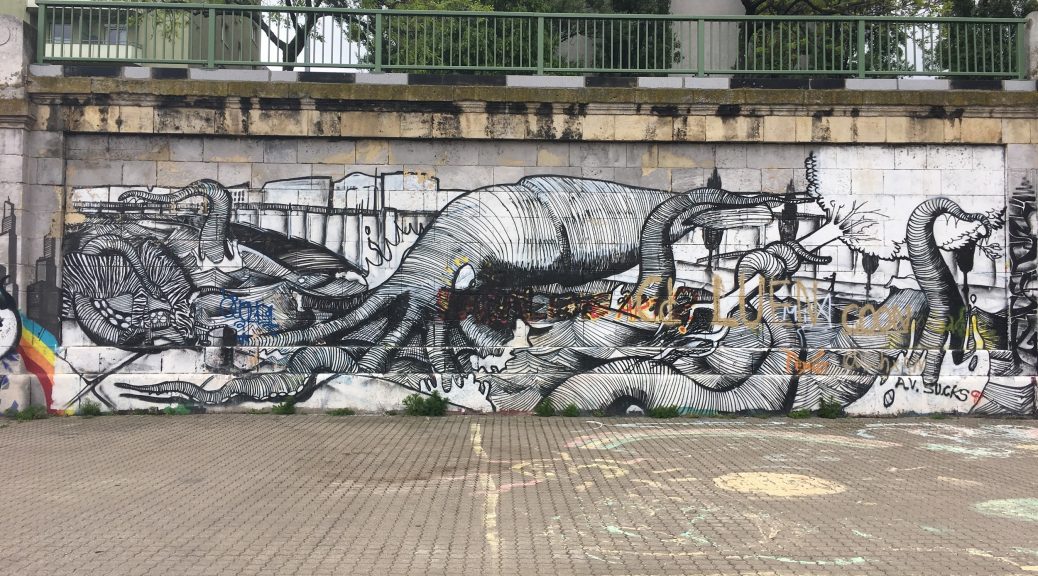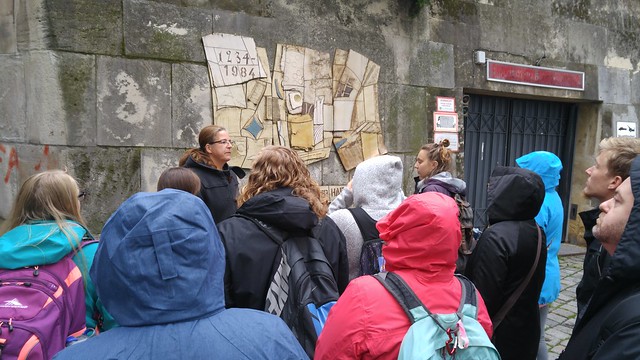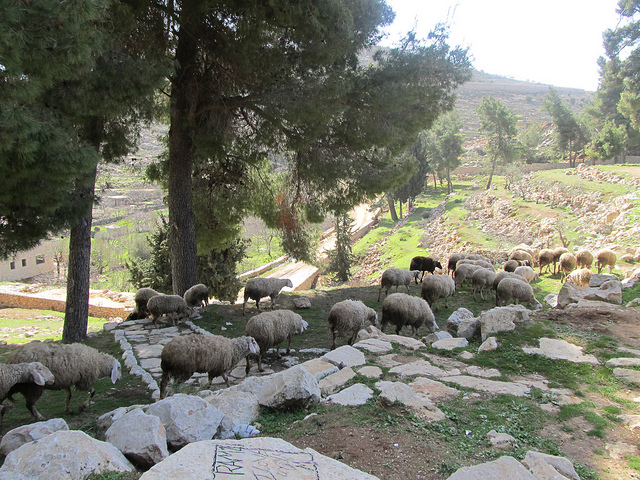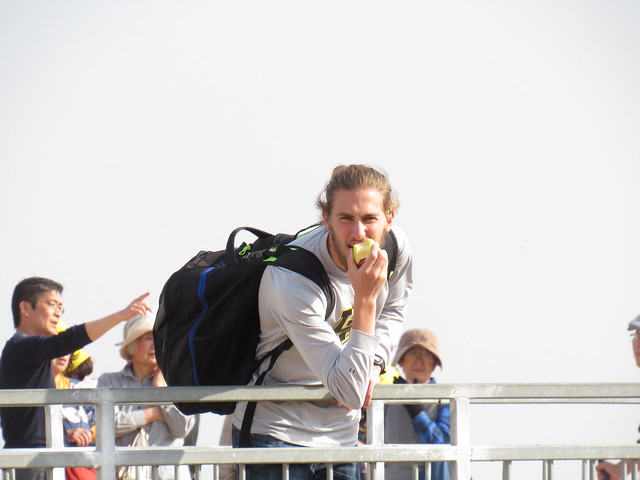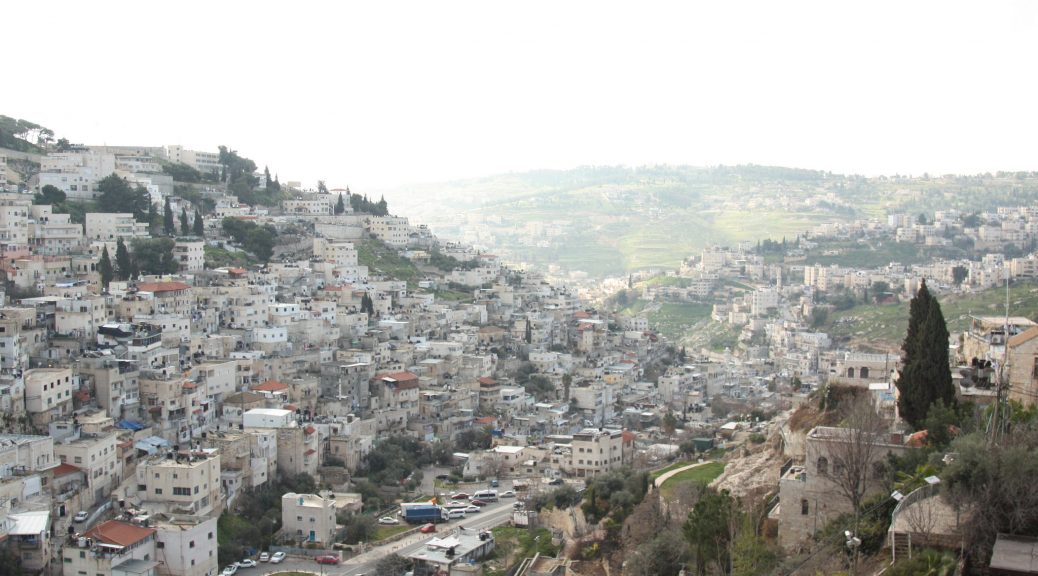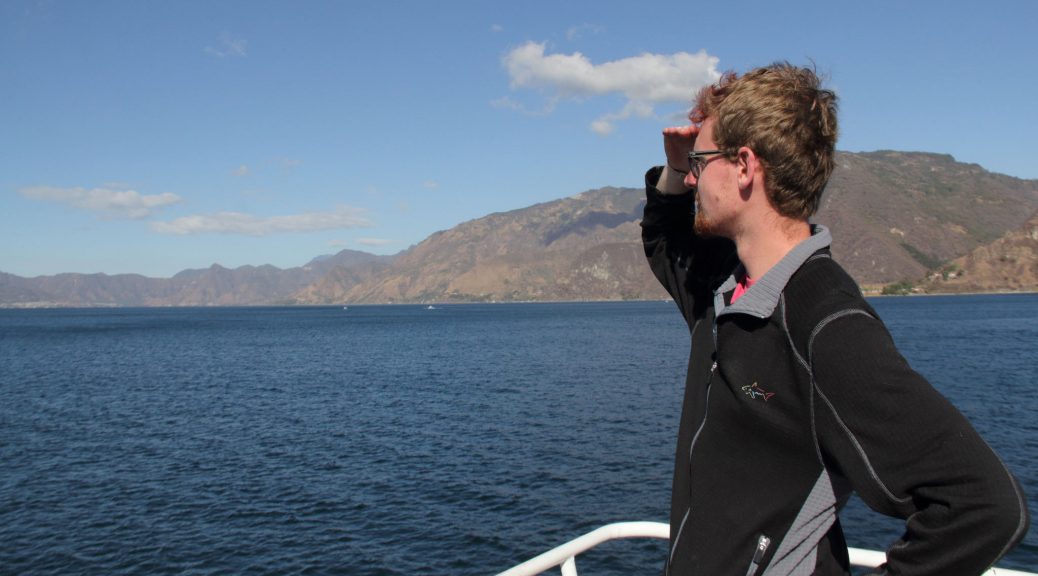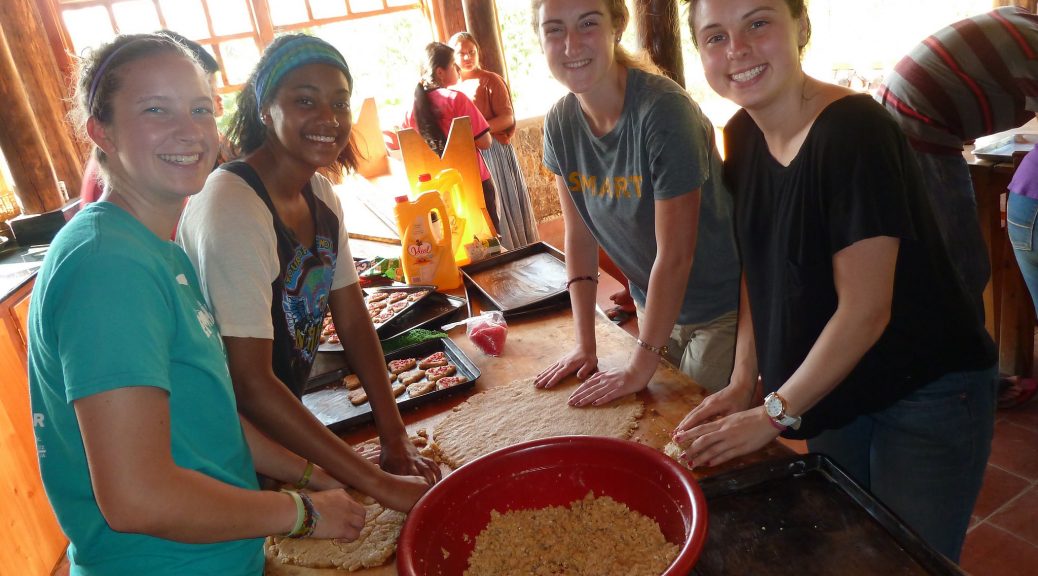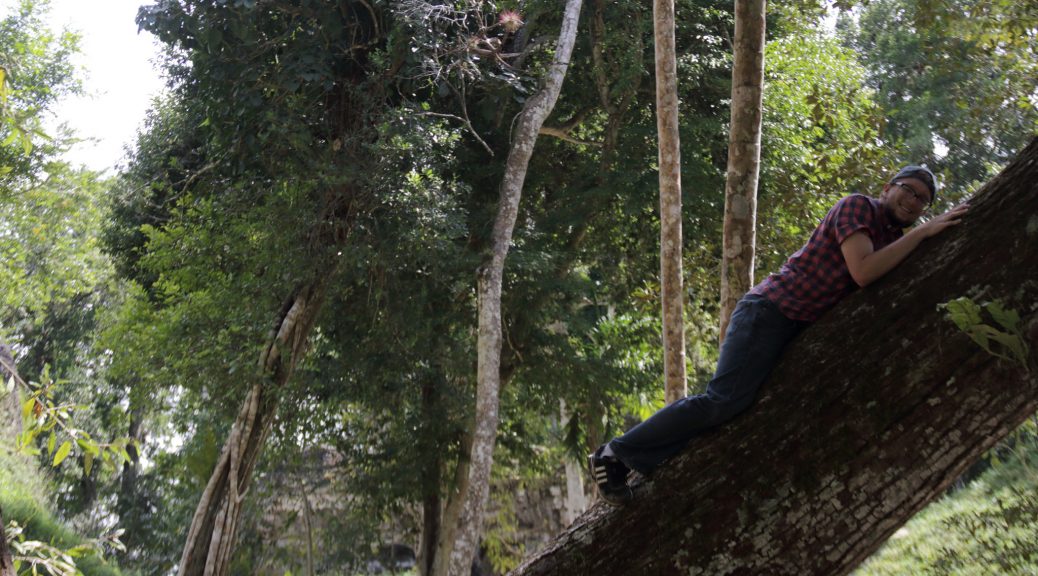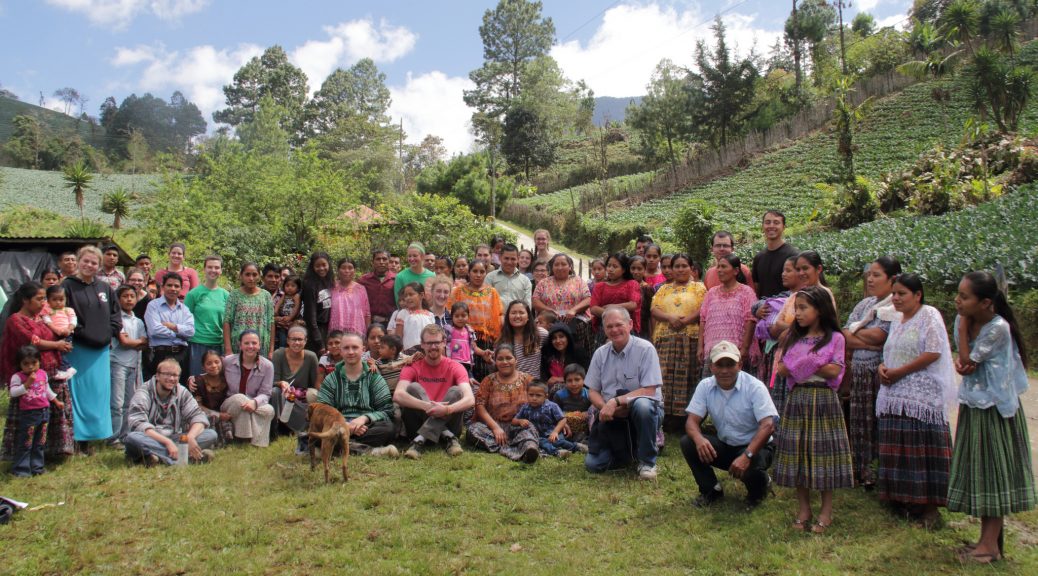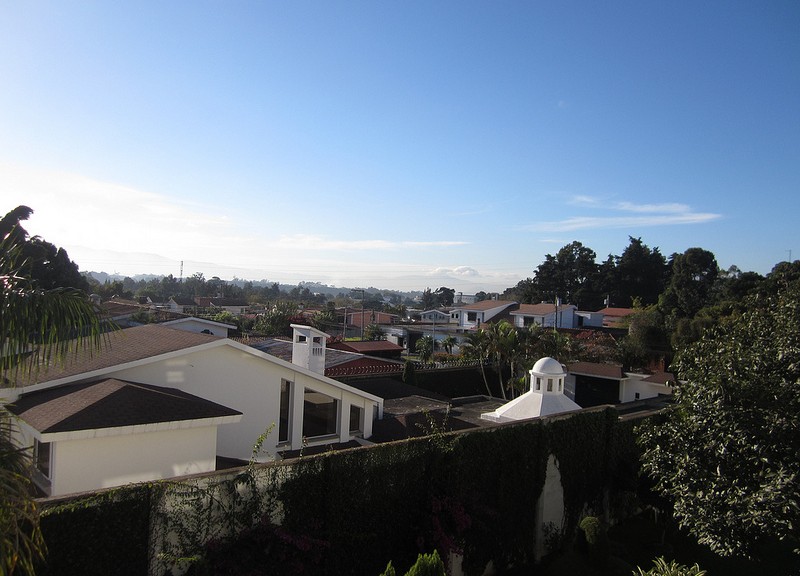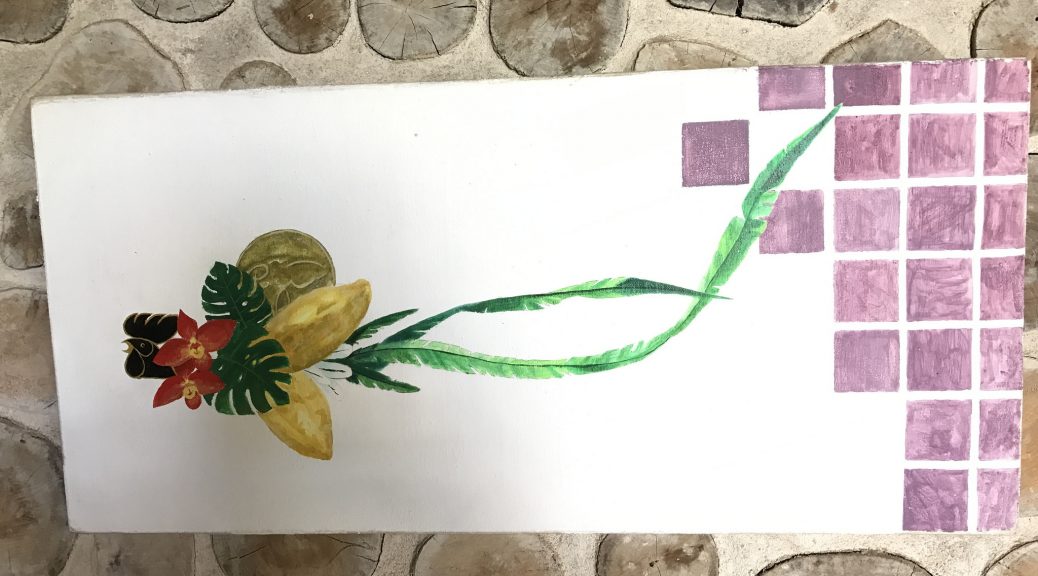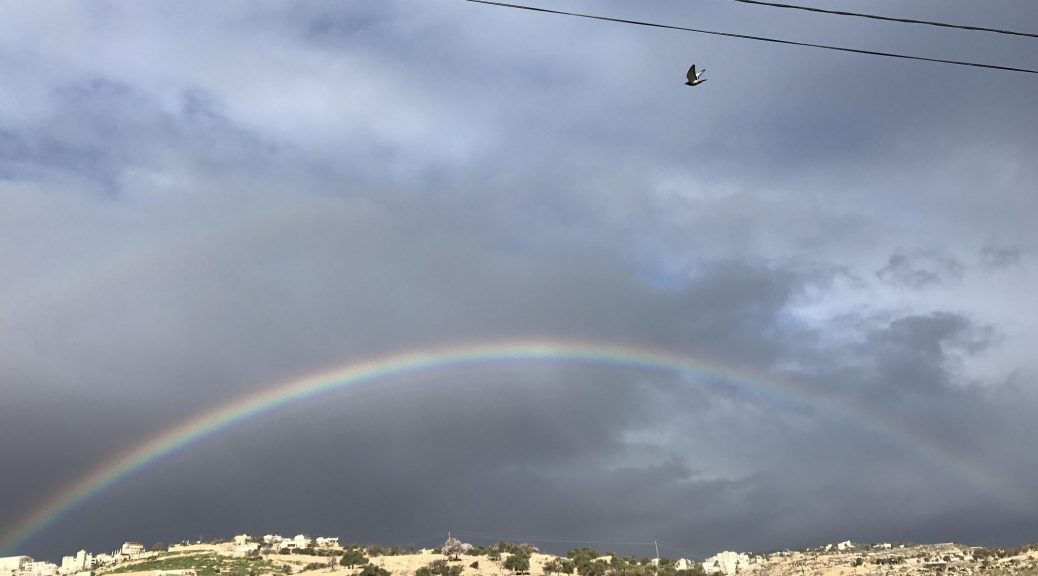27 February 2017
In between our two three-week semesters of Spanish classes in Guatemala City, our group had a 10-day trip to Alta Verapaz and Peten. These are departments in the north of Guatemala. During this time, we experienced three different cultures and activities. We began our week with a host stay in a Q’eqchi village called Xucaneb. The Q’eqchi are indigenous Mayan people and live a very simple lifestyle. The second part of our journey was at a place called the Community Cloud Forest Conservation, which focuses on education for indigenous women and children, conserving the cloud forest in the mountains of Guatemala and sustainable living practices. The third part of our journey was to the lowlands in Peten, where the climate is very warm and the scenery is different than the village and highlands of Alta Verapaz. We visited Tikal, which are ruins of an ancient Mayan city-state, as well as relaxed for a day on Lake Peten Itzal.
After our time in these three places, Jim and Ann gave us a journal prompt to think of a bigger question from each of these experiences. These are some of my reflections from my time in the village.
This experience brought up many questions for me. I was blown away by the kindness and generosity of my family and all those in the village. There is so much they gave to me. However, while at the Cloud Forest Conservation Center, Rob Cahill (our host) said something along the lines of “There is beauty in culture but there are also parts of culture that are toxic. We can recognize that and try to start from there.”
While beautiful and absolutely heart warming, I keep pondering what parts of culture are toxic in the village? It was difficult to feel like myself there. One, because it was harder to communicate. Two, because I knew there were certain expectations placed on me because I was female. So there are two parts to my reflection. The first is: what did I feel made me uncomfortable in the village and what parts that I think should perhaps be changed (as a Westerner and not knowing a lot of their culture)? The second is: What are parts of my culture that are toxic and should be changed?
In the village, I felt uncomfortable with three main things. There were other things that definitely pushed me, but these were in good and growing ways. The first that I have been reflecting on is the difference in age between my host mom and my host dad. While I really enjoyed my family, their clear age difference made me sad. He told me he was older than her and she looked like she was only a few years older than me. They didn’t tell me if their marriage was arranged but it could have been. (This being said, I was very much in awe of their relationship. My father treated my mother with respect and kindness, all while participating in what I view as traditional gender roles.) Who knows. It made me think about the future of my younger host sister. Will she marry young? Will she be able to choose her future?
The second thing I felt uncomfortable with is the economic situation of our village. My host father explained to me that the broccoli industry and company (from the States) has done wonders for the village, as has Christianity. However, this village is dependent on this company now. Yes, there is a market, but what if one part of the chain collapses? Would the farmers be able to switch back to subsistence farming? Would the soil be too used to do so? What happens when a community is solely dependent on one economic income? In my readings and studies previous to this, it always helps to diversify.
I was also uncomfortable with the continued discrimination. I realize and own that I have deeply seeded egalitarian beliefs. However, between the things I observed based on gender, I felt disturbed by the lack of value placed on different people’s lives. To be fair, in the greater Guatemalan society, there is less value placed on indigenous lives. But that does not justify women being mistreated and not given opportunities. I was startled by the segregation of gender in church, with women on one side and men on the other. I also was surprised at how few of the girls (in our EMU group) were taken to the broccoli fields. I wanted to see them and understand more, but my father said I wouldn’t have been interested in his work. Maybe it’s too judgmental to say they don’t place value on women’s lives… It is a different kind of value than I am used to, to be sure. It also pains me to know that the treatment of mentally ill people in these villages is so… uniformed. (Two of our group members saw this first hand). Mental illness is still so foreign and shameful for communities and families. I think there are many parallels between that and how people in the USA disregard those with disabilities. This was just a wake up call and a way to see very clearly the treatment of those who are different. There was value on the mentally ill person, but our group has concluded that we don’t need to agree with the way they placed value on her.
All this being said, I am questioning what culture is and how to recognize parts that would be beneficial to change. (I have a long reflection about what parts of my personal culture I think would be beneficial to change, but for length’s sake, I have left it out.) The village and the people showed me so much beauty. I felt so full and gratified by my time there. Even though I disagree with some aspects, I still hold an immense respect and gratitude for my time with my family. Yet this is a reminder to never stop questioning what makes me uncomfortable- wherever I am- be it in the States, my family in the city, or in a Mayan village, there is always more to analyze and ponder than what meets the eye.
-Katrina Poplett

